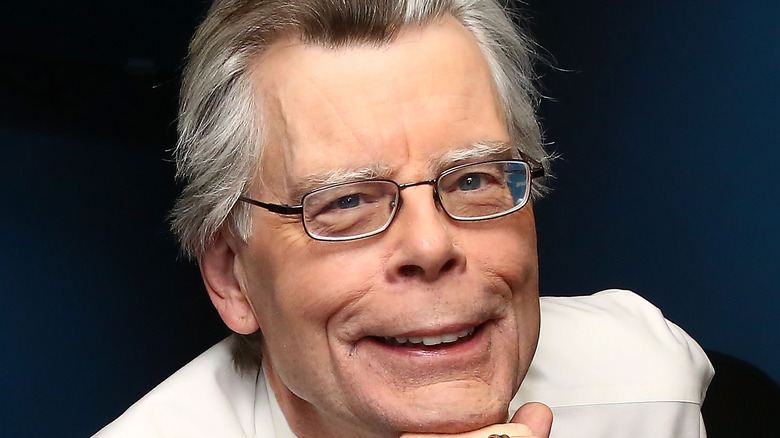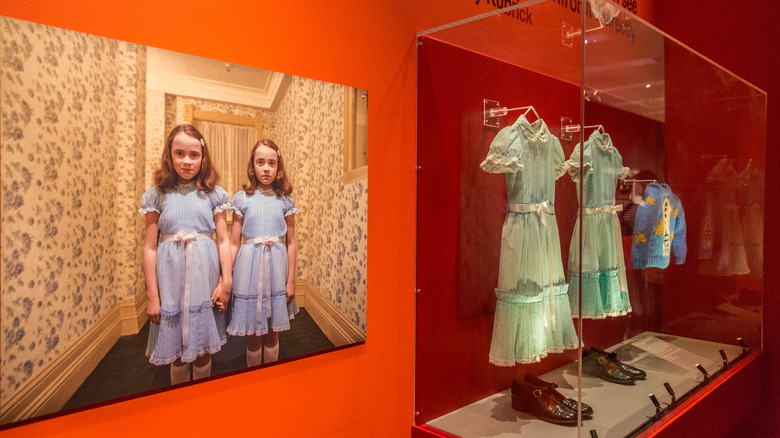The Real Reason Stephen King Hated Kubrick's The Shining
Over the course of his incredible career, Stephen King has carved himself an indelible reputation as the master of horror. He has an uncanny way of turning the most natural and unassuming of things into subjects of gripping suspense: a '58 Plymouth Fury (possessed by a vengeful spirit) in "Christine," a niche little corner store (run by an unidentified demon) in "Needful Things," and many more besides.
As with many of King's most notable works, 1977's "The Shining" was adapted for the big screen, in this case by Stanley Kubrick in 1980. The author has expressed his admiration for Kubrick, telling Deadline, "He's made some of the movies that mean a lot to me, 'Dr. Strangelove,' for one, and 'Paths of Glory' for another. I think he did some terrific things." Nevertheless, it's no secret that he wasn't a fan of the movie adaptation of his masterpiece at all. Here's why.
The manner of Jack Torrance's slow, inevitable, terrifying deterioration, to King, was lost in the movie. He explained to Deadline that Jack Nicholson's Torrance was clearly unbalanced right from the very start, and just became more so. "The character of Jack Torrance has no arc in that movie. Absolutely no arc at all," he said. "In the book, he's a guy who's struggling with his sanity and finally loses it. To me, that's a tragedy. In the movie, there's no tragedy because there's no real change."
Style over substance, cold over heat
It was a matter of contrasting viewpoints that led two creative minds in different directions. In "A Night at the Movies: The Horrors of Stephen King," a documentary by TCM, the writer detailed a telephone call he had with Kubrick (per YouTube). The director suggested that all ghost stories are inherently positive because they imply the existence of an afterlife. King disagreed, speaking of his belief in Hell, a sort of eternal purgatory in which Kubrick, by his own admission, doesn't believe.
For the director, the spooks of the Overlook Hotel were there because of Jack Torrance's malignant influence. For King, the writer went on, his protagonist was a tragic character who loved his family dearly, and fell prey to the hotel's own influence. Naturally, the symbolism wasn't lost on Stephen King: "In my novel, the hotel burns," he said in the documentary. "In Kubrick's movie, the hotel freezes. It's the difference between warmth and cold."
Both versions of "The Shining" are iconic in their own right, of course, but with the movie veering so far from King's original intent in terms of tone, it's not surprising that he hated it.

